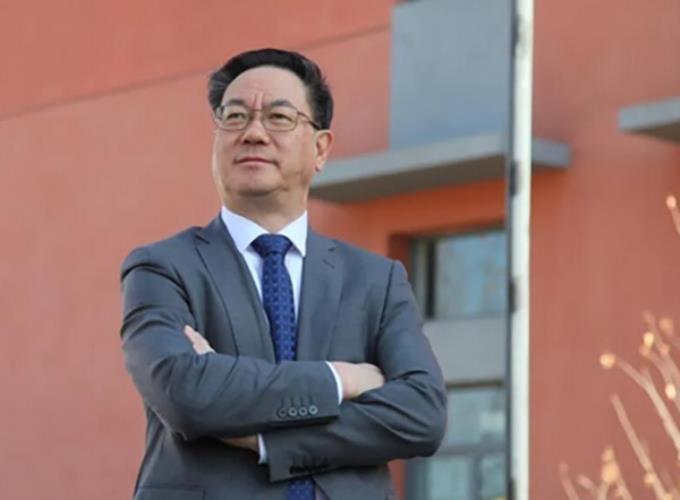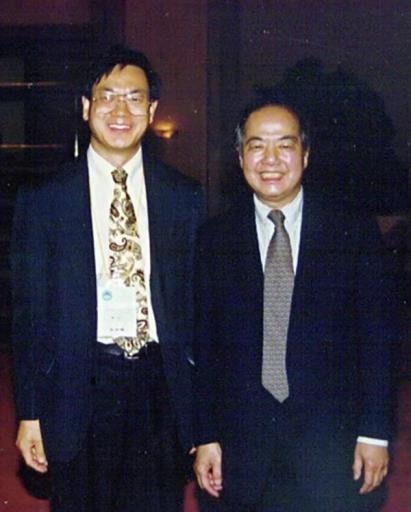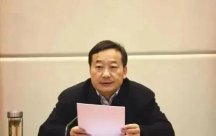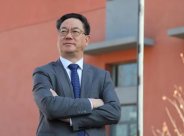Hong Kong English Media South China Morning Post disclosed on September 24 that a top Chinese scientist, known as the "father of nano -generator", ended his career in the United States for decades and returned to his motherland China to launch nano -scienceResearch with nano -technology.
Wang Zhonglin, born in 1961, was the founder of the field of nano energy research.He has worked for the School of Materials Science and Engineering of Georgia Institute of Technology for nearly 30 years. On the personal homepage of the college, Wang Zhonglin "is regarded as a pioneer and pioneer in the field of nano -science and nanotechnology in the field of nano sciences and nano -technology."Leader", he has contributed to the most prominent nano -generator and self -powered sensor in scientific research, which has opened up technical potential for wireless equipment that can be powered without batteries.
Comprehensive Chinese media reports and a professor of Georgia Institute of Technology confirmed that the South China Morning Post said that Wang Zhonglin has resigned and worked full -time in the research institute in Beijing.As of the press time, Wang Zhonglin himself and Georgia Institute of Technology had no response.
It is reported that at the end of 2010, Wang Zhonglin came to China to attend a meeting. Bai Chunli, the executive deputy dean of the Chinese Academy of Sciences and deputy secretary of the party group, asked if he was interested in establishing a research institute focusing on nano energy and nano systems.After returning to the United States, Wang Zhonglin applied to the Georgia Institute of Technology. After being approved, he helped China to set up the Beijing Nano Energy and System Research Institute of the Chinese Academy of Sciences.
The Beijing Nano Energy and Systems Research Institute of Chinese Academy of Sciences is a new research unit jointly co -constructed by the Chinese Academy of Sciences and Beijing in 2012. The institute held the first meeting of the establishment of the first council in July this year.Meeting.According to the information of its official website, the meeting appointed Academician Wang Zhonglin as the director and chief scientist of the Beijing Nano Energy and System Research Institute.

On September 16th, Elsevier, the world's largest academic publisher Elsevier and Stanford University, the latest world "Standardized Citation Indicators Database Database" ranking, Wang Zhonglin ranked second in his career influence in his career.The ranking of scientific influence in a single year ranks first in five consecutive years.However, the Nanhua Morning Post pointed out that his institutions have changed from Georgia Institute of Technology to the Chinese Academy of Sciences.
Wang Zhonglin was admitted to the School of Telecommunications Engineering in Northwest China in 1978 (now Xi'an University of Electronic Science and Technology). In 1982, he was selected to participate in the Chinese and American physicist Li Zhengdao advocated by Chinese -American physicist Li Zhengdao in 1982., Go to the University of Arizona State University to study nano disciplines.This laid the foundation for his later research in the field of nanoics and nanotechnology.
In the interview of the Chinese Journal of China last month, Wang Zhonglin looked back at the experience, saying that Cuspea was the place where his "dream began.""For me personally, Cuspea is an important turning point in my scientific career. Mr. Li Zhengdao's most important contribution is to open a" door to the world "for Chinese students." Wang Zhonglin said.
According to him, Cuspea's organizational contact in the United States was managed by Li Zhengdao himself.Li Zhengdao suggested that the contribution of talent projects such as youth classes, post -doctoral systems, creating Cuspea and other talent projects are inestimable. He is not only a great scientist, but also a great educator.Cultivate more students, I hope to use my studies to build a platform for young students. "

South China Morning Post pointed out that Wang Zhonglin guided a large number of young scientists at the Georgia Institute of Technology. He listed these scientists in his personal data, and many of them returned to work in China.
The newspaper pointed out that the fields of nano -science and nanotechnology are essential to Beijing and Washington because they have a wide range of applications in energy, medicine, and military technology.Both Chinese and American governments provide funds for R & D projects in related fields.
In recent years, the United States has strictly "reviewed" the cooperation between the two countries in the field of nano -science and nanotechnology.Charles Lieber, the top American chemist and the former director of the Department of Chemistry and Chemistry, Harvard University, and cooperated with Chinese universities in 2020, was involved in the infamous "China Action Plan" in the United States.After Yue was sentenced to guilty, it was placed under house arrest in 2023.At the end of last month, he announced that he was looking for job opportunities in "Hong Kong, Mainland China and other places."
A report from the South China Morning Post in July this year quoted a study at Stanford University in the United States that more and more Chinese scientists chose to give up the work of the United States to return to China. The main influencing factor they made this decision was that the US government was"Action to fight economic spies."The China Economic and System Research Center of Stanford University said that since the implementation of the "China Action Plan" in the United States in 2018, the number of Chinese scientists left the United States has increased by 75%.
Georgia Institute of Technology also announced the withdrawal of a cooperation project for nearly 8 years because of unreasonable sanctions in the United States.On September 6, the college announced on its official website that because Tianjin University will withdraw from the Shenzhen College of Georgia Institute of Technology, Tianjin University, which is sanctioned by the US government, will withdraw from the Shenzhen University of Georgia University in Shenzhen to terminate its with China Tianjin University.Research and educational partnership with the Shenzhen Municipal Government.
As early as May of this year, the college was reviewed by the US Congress because of the cooperative development of Georgia Institute of Technology and Tianjin University.On September 23, local time, the House of Representatives led by the United States Republicans, the "Special Committee for Strategic Competition of the United States and China" and the House of Representatives Education and Labor Committee in one report again aimed at the three American universities including Georgia Institute of Technology.They claim that they "shifted key American technology and professional knowledge" to China in cooperative school -run projects with China, and accused U.S. universities accusing US universities making mistakes in the Federal Government's sources of funds in China.
This article is an exclusive manuscript of the Observer Network. It is not allowed to reprint without authorization.



